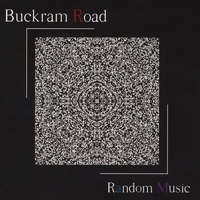When I first wrote Oyster Bay 2000 in 1993, part of it included a "Community Congress." A Community Congress was simply a more organized way to to elicit productive ideas from the community's "best and brightest" and to foster interaction between community groups so that they may help one another where possible with government acting in a supporting rather than primary role.
It's not that government doesn't have a role, it's just that it is impossible for government to do everything that its citizens desire without having a significant tax impact. Also, there are a number of bright individuals in all our communities who have great ideas and services to offer, but may not have an organized forum to propose and debate these ideas and to offer these services. At the time I proposed the Community Congress, I conceived of it primarily as a body of individuals who actually "physically" met from time to time. But today, with the advancement in Web 2.0 and other technologies, perhaps a "virtual" Community Congress is a better choice as a primary mode of communication. A sort of better organized, standardized and more interactive "blogosphere" concept.
It's been my experience that most Long Island resident do wish to be cooperative productive citizens. They do, however, require information which is as accurate and unbiased as humanly possible. There is a profound distrust regarding information we receive from traditional sources and perhaps there always has been. How then do we begin the process of a more open dialogue? Is it even possible anymore to have productive dialogue not linked to individual personal advancement (or an organization's need to be influential) and the personal destruction of those we disagree with?
A tall order to be certain and one that will not be solved overnight or on one individuals or organization's timetable. I believe a good place to start is with the organization of data on Long Island and converting this Long Island data into a "dynamic" and "interactive" format (see LI Metadata). We need to establish ground rules and boundaries for us to begin the dialogue (some would say continue the dialogue) and have a long term, rational solution to problem solving which comports with short term and medium term needs and desires. Not easy, but necessary.
One of the best things about Long Island is its individuality and its abundant resources of some of the brightest people on the planet. Long Island is like one big abstract jig-saw puzzle of organizations and ideas. Going forward we hope to help construct a reasonable methodology for allowing these folks to help shape Long Island's bright future and solve the puzzle.
Subscribe to:
Post Comments (Atom)











































No comments:
Post a Comment